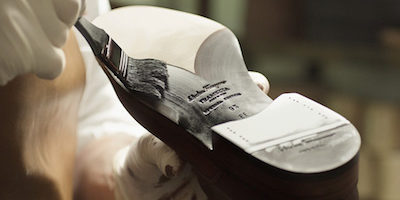This article reports that faculty at the prestigious fashion school Central Saint Martins turn a blind eye to students who have their collections made by professionals (https://i-d.vice.com/en_uk/article/vbjv89/how-do-you-really-measure-the-success-of-a-fashion-degree). The work load and the pressure to excel tempts students to pay others to do the handcraft part of clothes construction.
Getting such help can run as much as ten thousand pounds. As craft counts for 50% of the final grade, clearly — assuming the report is accurate — some students are buying their grades. The injustice is obvious: the best places in fashion are for the children of the elite.
Now, any regular reader of these pages knows, I am a fan of Burke and Kolnai, both of whom show the moral value of privilege. However, it is possible to make a distinction between privilege and rank elitism. Privilege is good on account of the high value tones it affirms. Craft is one of those values and is in plentiful supply at the best fashion houses.
Here is one of St. Martin’s chief faculty members conceding that craft is secondary:
“Ideas are the strength of the new,” Zowie Broach, Head of Fashion at RCA, tells us. “Today, more than ever, passion, new thinking, that ability to collaborate with elegance and professionalism seems to be key and essential to the best companies and designers.”
Note the emphasis on the new, whereas craft is inescapably about the past. Let’s contrast this attitude with this extremely insightful video into the ethos of Ferragamo:
Ferragamo is now a contender for the Best Dressed Company Award! This ethos is repeated at Chanel, Cucinelli, Dior, to name only a few.
The Ferragamo video suggests that despite Ms. Broach’s eminent position her comment might link more to ideology than industry realities. This provocative article argues that commercial concerns driven by big data outweigh creative originality in fashion today:
Burke and Kolnai argue that privilege secures justice (please see V&R Chapter 7 and my http://www.libertylawsite.org/2018/06/14/establishment-of-nobility-and-modernity-the-thought-of-aurel-kolnai/). With their dual commitment to design and craft, the great fashion houses affirm high values, as does Central Saint Martins in many ways, undoubtedly. An argument can be made for privilege, but not elitism, and to affirm justice St. Martin’s would do well to return to the demands of craft.






